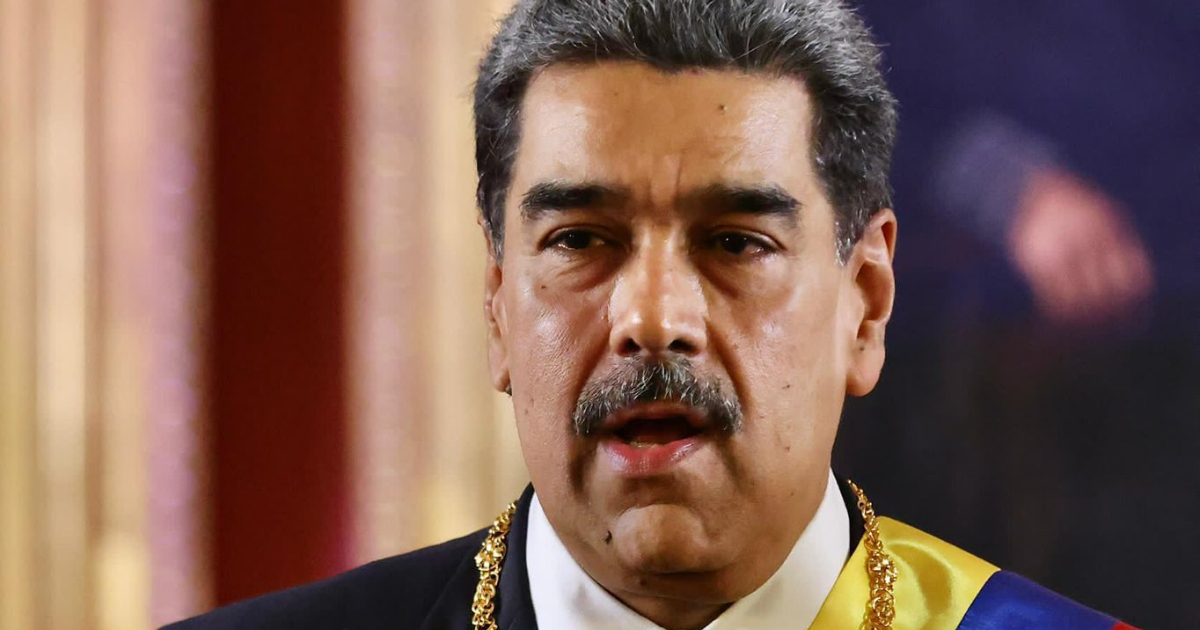
Related videos:
The European Union and several countries around the world, including the United States, rejected this Friday the presidential swearing-in of Nicolás Maduro in Venezuela, which they viewed as "a desperate attempt to hold onto power."
In response to the recent events in the South American nation, the European Union (EU) imposed a new package of sanctions on 15 individuals deemed responsible for undermining democracy, the rule of law, and human rights in Venezuela, following Nicolás Maduro's swearing-in for a new term without having presented the electoral records.
The measure includes another 15 members of Venezuela's National Electoral Council, the judiciary, and security forces; therefore, a total of 69 people from that country are now under the scrutiny of EU sanctions, which include asset freezes and travel bans to the EU.
According to the statement from the regional bloc, the sanctions package does not affect the people or the economy of Venezuela, but is aimed at individuals responsible for the current situation.
The sanctions will remain in place until tangible progress is made in human rights, the rule of law, and a democratic transition in Venezuela, he emphasized.
That bloc asserted that Maduro, who took an oath before the Venezuelan Parliament as the president of the Latin American country, lacks "the legitimacy" of a "democratically elected" leader.
"Venezuelan authorities missed a key opportunity to respect the will of the people and ensure a transparent democratic transition with guarantees for all. Nicolás Maduro, therefore, lacks the legitimacy of a democratically elected president," stated the head of community diplomacy, Kaja Kallas, in a statement on behalf of the Twenty-Seven.
For its part, the United States issued a statement stating that "the Venezuelan people and the world know the truth: Maduro clearly lost the presidential elections of 2024 and has no right to claim the presidency."
"The Government of the United States rejects the fraudulent announcement from the National Electoral Council (CNE) that declared Maduro the winner of the elections and does not recognize Nicolás Maduro as the president of Venezuela. The elected president, Edmundo González Urrutia, should be sworn in, and the democratic transition must begin immediately. The United States is prepared to support a return to democracy in Venezuela," the text stated.
Additionally, that country increased the bounty for information leading to the capture and/or conviction of Nicolás Maduro and Maduro's Interior Minister, Diosdado Cabello, offering up to 25 million dollars for each.
The German government rejected the takeover by Chavismo, and several Latin American countries have also spoken out against what they consider an arbitrary theft of the electoral results.
According to available reports and election records, millions of Venezuelans supported Edmundo González Urrutia, who is said to have achieved a significant majority at the polls.
However, Venezuelan authorities have not published the official disaggregated results, which has raised concerns about the transparency of the process and led the EU to not recognize Nicolás Maduro as a legitimate president.
In its statement, the EU also condemned the worsening repression against the opposition and civil society since the elections, noting that more than 2,500 citizens have been detained, including minors.
Despite the release of some detainees, the regional bloc emphasizes that none of these individuals should have been in prison.
In this regard, he called on Venezuelan authorities to put an end to arbitrary detentions and to release all political prisoners unconditionally.
The European Union emphasized the importance of Venezuela fulfilling its international obligations, particularly those established in the Vienna Conventions on Diplomatic and Consular Relations.
In 2025, the EU will continue to provide humanitarian assistance to the Venezuelan population, which is still facing a severe humanitarian crisis, the statement explained.
Last year, the European Union allocated nearly 75 million euros to alleviate the needs of the most vulnerable population.
Frequently Asked Questions about the European Union's Position and the Crisis in Venezuela
Why does the European Union not recognize Nicolás Maduro as the president of Venezuela?
The European Union does not recognize Nicolás Maduro as the legitimate president due to irregularities in the presidential elections of July 2024, which were widely questioned by the opposition and the international community. The EU believes that the electoral process did not meet the standards of transparency and democracy, and therefore does not legitimize Maduro's mandate.
What measures has the European Union taken against the government of Venezuela?
The European Union has imposed sanctions on 15 individuals deemed responsible for undermining democracy and human rights in Venezuela. These sanctions target individuals and do not affect the people or the Venezuelan economy. The EU hopes that these measures will contribute to tangible progress in human rights and a democratic transition in the country.
Who is recognized as the legitimate president of Venezuela by the European Union?
The European Parliament, although not binding, has recognized Edmundo González Urrutia as the legitimate president of Venezuela. This recognition is based on reports and electoral records suggesting that González garnered a significant majority at the polls during the disputed elections of July 2024.
How has the Maduro government responded to sanctions and international pressure?
The Maduro government has rejected international criticism and sanctions, labeling them as interference. Maduro has withdrawn diplomats from several Latin American countries that have questioned the electoral results, and has continued with the repression against opponents and protesters in Venezuela.
What support does the European Union provide to the Venezuelan people?
The European Union reaffirms its commitment to the Venezuelan people by providing humanitarian assistance. In 2024, the EU allocated nearly 75 million euros to alleviate the needs of the most vulnerable populations, and plans to continue this support in 2025. Furthermore, the EU promotes genuine dialogue and a democratic solution to restore political stability and economic growth in Venezuela.
Filed under: